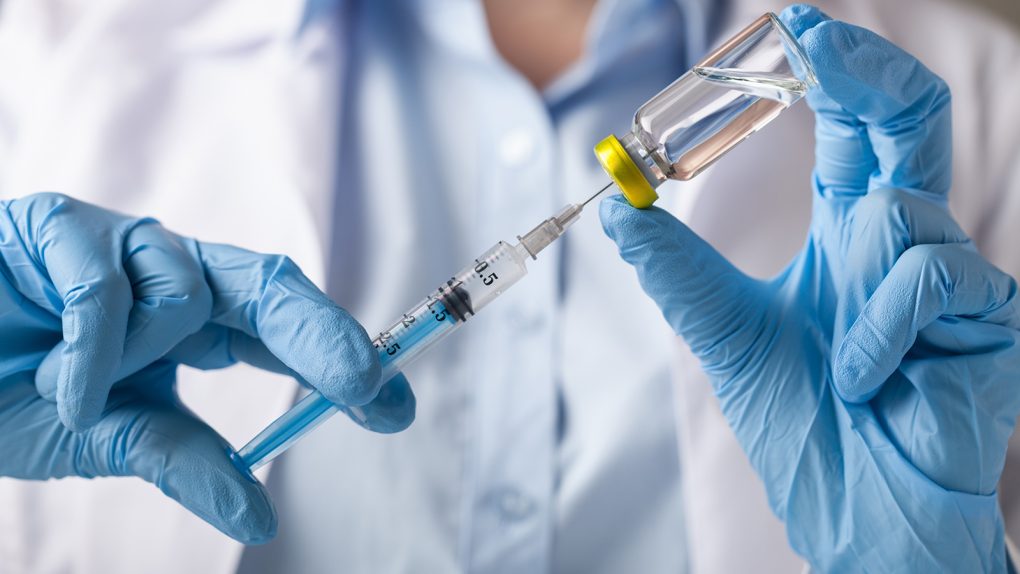- A coronavirus vaccine trial appears to be showing some promising results, according to manufacturer Pfizer.
- The trials reportedly show that the vaccine is causing the body to produce antibodies in the same way it would if a person were infected.
- The double-blind trials will continue, but we shouldn’t expect a vaccine to be readily available until 2021.
Social distancing, mask-wearing, and hand washing are all important steps we should all be taking to slow the spread of the novel coronavirus. It’s clear at this point that the US decided to “reopen” far too soon, and many states are now seeing record numbers of new cases piling up fast. A vaccine could turn the tide, but as we’ve known all along, developing such treatment takes time.
David Rach, who was one of the first people to receive a COVID-19 vaccine trial. It was administered by scientists at the University of Maryland School of Medicine, and Rach’s status has been monitored along the way, with the hopes that the vaccine can bolster his body’s immune system with antibodies that fight off the virus preemptively. Now, Pfizer, which developed the vaccine, says it appears to be working, at least for now.
Rach spoke with WJLA and revealed that, in a recent Pfizer update, the company says the vaccine is producing antibodies in the volunteers’ bodies in a similar way to those who were actually infected with the coronavirus.
“It’s exciting from the side of a participant and graduate student studying immunology and also exciting in the promise of a vaccine by next year and life returning to a semblance of normal,” Rach said. “I found out when Pfizer put out the announcement and my friends started pinging me on Facebook, ‘Oh your picture is in the news again!’ and I’m like wait what happened? There is a component of relief seeing that it’s actually producing results, that the vaccine is producing antibodies.”
It’s important to note that while Rach was the first participant, he’s not the only one involved in the trial, and since the structure of the trial is double-blind, Rach doesn’t know whether or not he was given the vaccine or a placebo. Nevertheless, Pfizer says that the trial itself is showing results, so if Rach received the vaccine — he thinks he did, based on a reaction he had to the second shot — he may be one of the first people on the planet to have immunity against COVID-19 without first being infected.
At the moment, there’s still no reason to believe that a COVID-19 vaccine will be ready for wide distribution prior to early 2021. Trials for vaccines take significant time to complete, even when it’s being “fast-tracked” by the FDA, so wear your mask until we can be sure we’re not all making the pandemic even worse.








